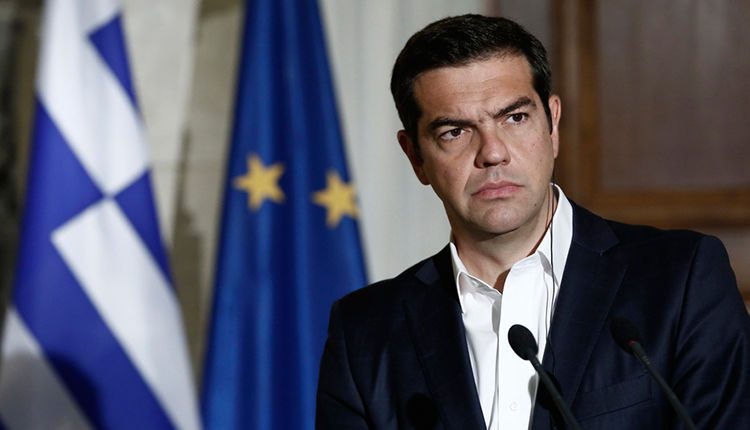Greek Prime Minister Alexis Tsipras proclaimed in an overly extended image that Greece had ended its painful Odyssey of eight years of crisis, against the backdrop of the
A lavish celebration on the Pnyx Hill, next to the Acropolis, in Athens, was planned. The citizenry was to hold popular assemblies, as in the ancient democratic period.
The angry aftermath of the forest fires last month put paid to Greek Prime Minister Alexis Tsipras hosting EU and other luminaries in such a way to mark the formal end of the country’s subordination to the austerity memorandums. Instead, he made a much low-key broadcast to the nation from the island of Ithaka, on Monday.
He proclaimed in an overly extended image that Greece had ended its painful Odyssey of eight years of crisis, against the backdrop of the harbour to which Odysseus is held to have returned after a decade of tortuous voyage. Few in Greece were taken in by the theatrics and self-identification of Tsipras as Homeric hero. Some recalled a previous Greek prime minister declaring a new dawn for the country from a remote island. It was at the onset of the crushing austerity period in 2010 that Pasok’s George Papandreou said pretty much that from the island of Kastelorizo off the Turkish coast.
He informed the country that he was going to sign up to the first memorandum with the troika of the European Union, European Central Bank and International Monetary Fund. “Despite the cheap communications tricks in sheltered harbours the truth cannot be concealed,” quipped a sharp-witted politician of the left. His name was Alexis Tsipras. Eight years on and the truth cannot, indeed, be hidden. The imposition of neoliberal solutions on Greece has been a catastrophe.
The economy has shrunk by about a quarter and average living standards by a third. The resulting social dislocation and suffering is enormous. Several business commentators have hailed a slight fall in overall unemployment figures to possibly under 20 per cent (youth unemployment is double that). But few point out that one in 10 of the working age population of Greece has left the country in the crisis years.
That is the principal reason why the figures are not higher still. Those who have left show no indication of returning to the country. A basic measure of civilisation, the capacity to provide for the wellbeing of a stable or expanding population, has not been met. The enforced economic exile of a tenth of the population is not “free movement.” It is the involuntary sacrifice of people to the dictates of corporate capitalism.
For the bailouts had nothing to do with alleviating the economic condition of the mass of Greek people. They were to save the zombie European banking system. The first was to rescue the mainly French and German banks exposed to defaulting Greek debt.

The second bailed out the private Greek banks. The third, the one Tsipras signed up to, aimed ruthlessly at driving through the privatisations, welfare cuts, assaults on workers’ rights and “modernisation” of the economy that the first two pledged but had not accomplished. All of this was driven by the troika imposing — with willing co-operation from the Greek elites and their old political parties — an economic dogma whose predictions of a return to growth were refuted year after year. Those congratulating themselves on the “success” of Greece need to be reminded that the neoliberal economists’ forecast of a return to growth after two years turned out to be six.
It also meant a severe truncation of democracy and of national sovereignty. One EU official after another bluntly stated that to stay in the bloc and the single currency meant that democratic expressions of the mass of people — elections and referendums — had to be put aside.
Tsipras averred to this in his Homeric address on Monday as he took aim at his predecessors from 2009 to 2015 for sinking the country. He criticised a system in which “bankers become politicians and politicians become bankers.” It was a thinly veiled reference to the ECB banker Lucas Papademos who became an unelected prime minister in 2011, and to the former finance minister Yannis Stournaras who became governor of the Greek central bank — in reality a branch office of the ECB — in 2014.
For anyone serious about breaking from this failing phase of capitalism the Greek experience raises some fundamental questions of strategy for the working class movements and the left in Britain and in Europe. The Syriza government was essentially a social democratic evolution out of Greek communism, which had been for most of the 20th century the main expression of working class and radical politics in the country.
Its strategy for escaping the murderous austerity memorandums was to rest on two things. First, obtaining a majority position in parliament. Second, to deploy rigorously developed economic arguments with the EU and creditors as to why the austerity had to be lifted. The problem was twofold. As attested by various participants, including Yanis Varoufakis in his memoir, a majority in parliament did not mean control of the levers of the state.
That was especially so, as for two years before coming to office Syriza had gone out of its way to reassure those permanent state mechanisms that it would not be disrupting their power and the continuity of capitalist interests it was exercised for. The mantra was “we are a government in waiting.” So from senior police officers to the central bank and the permanent bureaucracy of the finance ministry the government was undermined from day one.
The second was a naïve faith in the power of a logical argument against those bound by a thousand golden threads to refusing to accept it. Everyone could see that austerity and the economics behind it were not delivering the promised recovery in Greece. At the same time the European elites and their politicians could not admit the truth.
If Greek debt was unsustainable, then so was that of Spain, Italy and elsewhere. If, seven years into the crisis, it had to be admitted that the emperor had no clothes in Greece, then it meant telling people from Indiana to Ireland, Britain to Bulgaria that their suffering in the crisis years had been for naught also.

Greece is out of the formal memorandum period but is still constrained by quarterly inspections to make sure the failed god of neoliberal capitalism is being propitiated. The prospect of a return to borrowing from the global markets looks more and more remote as the Turkish currency crisis and the impact of rising interest rates on emerging economies such as Brazil and South Africa risks another credit crunch.
Throughout all of this the working class movement in Greece has managed to sustain opposition, despite demoralisation, ebbs and flows. That, and the intervention of that part of the left who took seriously this strategic dilemma, has meant that predictions of a massive fascist resurgence out of the failure of Syriza in office have not been realised.
That danger is far from over. It will not be met by pre-election orations from the island of Ithaka. It’s going to require more of the kinds of things that are being posed elsewhere in Europe and in Britain. Popular and militant opposition to austerity. A much more serious strategy for radical change than just positing a government in waiting.
Kevin Ovenden
Courtesy: Morning Star
©IPA Service
Photos from the Internet
#Greece #PrimeMinister #Politics #world #Government #DifferentTruths





 By
By
 By
By
 By
By
 By
By